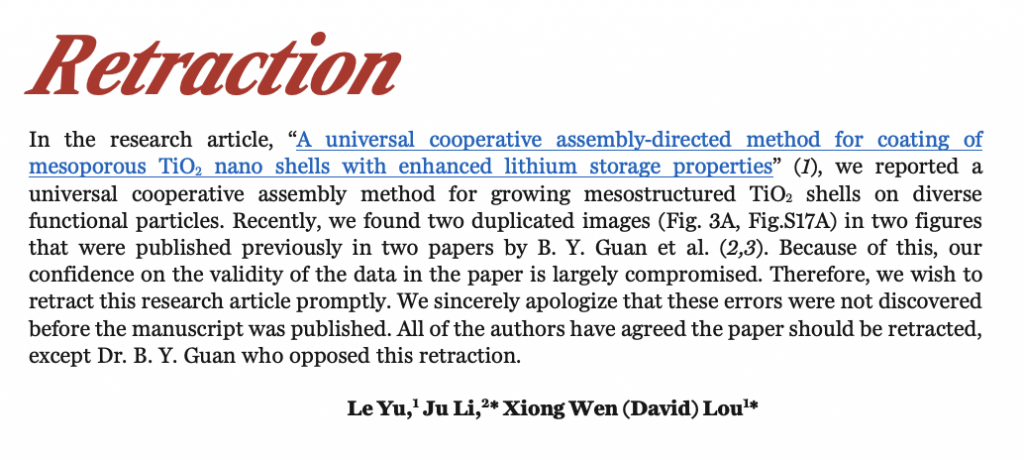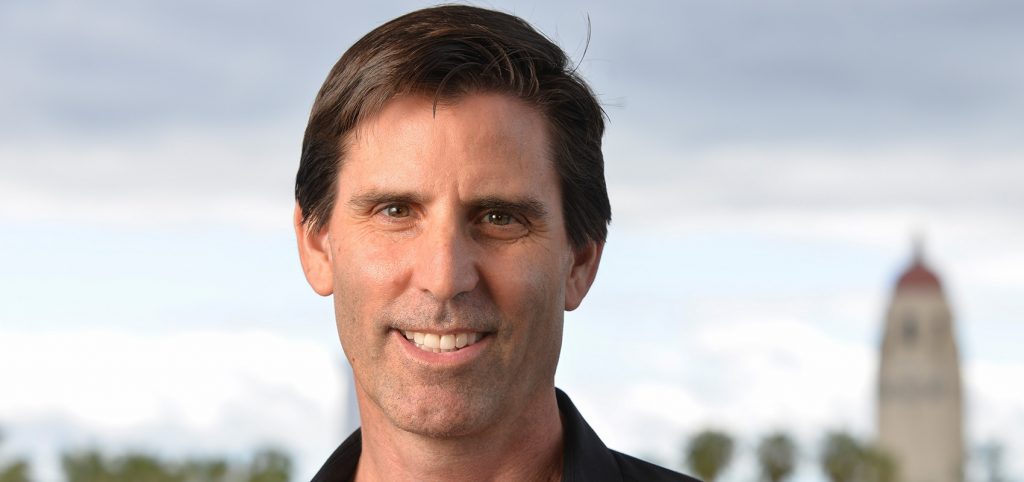Researchers in the United States and Singapore have lost a 2016 article in Science Advances after some of the group learned that one of their colleagues appears to have used duplicated images in the work.
The article, “A universal cooperative assembly-directed method for coating of mesoporous TiO2 nanoshells with enhanced lithium storage properties,” was written by Bu Yuan Guan, then of the School of Chemical and Biomedical Engineering, Nanyang Technological University, along with colleagues at that institution and Ju Li, of the Department of Nuclear Science and Engineering and the Department of Materials Science and Engineering at the Massachusetts Institute of Technology.
The paper has been cited 167 times, according to Clarivate Analytics’ Web of Science.
According to the retraction notice:
Continue reading Nanotech paper retracted for duplicated images








